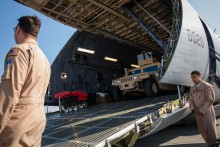America is now watching presidential debates. The US election campaign is entering its final phase, and most voters will very soon choose the candidate to vote for on November 8. One of the most important questions for Ukraine is what we can expect from the new administration. No matter who will be the White House’s occupier in the next four years, Ukraine will have to actively cooperate with the new team. It will not be an exaggeration to say that most Ukrainian and Eastern European Americans are going to vote for the Democratic candidate Hillary Clinton.
Incidentally, the former US ambassador to Russia, Michael McFaul, said in his Washington Post article that blue-collar workers of Eastern European heritage had helped Ronald Reagan win the 1980 and 1984 presidential elections. And although Democratic spin masters pinned their hopes on the votes of low-income Ukrainians, Poles, and Baltic people, Reagan’s security and foreign-policy agenda persuaded the Eastern Europeans to support the Republican candidate. In spite of Clinton comparing Putin’s actions with those of Hitler on the eve of World War Two, the question of what will be the difference between her administration’s approach and Obama’s policy still remains open.
Even some Democratic circles in Washington believe that Obama might have done more for Ukraine. He might have but did not. Suffice it to recall Obama’s comments on Ukraine, quoted by Jeffrey Goldberg in his article “The Obama Doctrine,” where the president called our county Russia’s “client state” which “is going to be vulnerable to military domination by Russia no matter what we do.” Obama could not or did not want to understand the strategic importance of Eastern Europe from the very beginning of his term. Advisers tried to persuade him that the US president’s chief mission was to correct the US’s mistakes and worldwide image after George W. Bush declared the “war on terror.” As the situation with international terrorism is only worsening, we can say firmly that the policy of reconciliation did not work.
In the past decade, dictators have learned “to work with the West.” Putin is the best example of this. He has understood how one can escape punishment for spreading the Kremlin’s propaganda in the West. One should take advantage, in the worst sense of the word, of the simple laws of journalistic ethics. As it is normal for the Western media to express an alternative point of view, he thinks that RT clearly fits into this category. Sponsoring anti-globalist and anti-Wall Street movements and promoting the idea of “future belongs to BRICS” is in fact Putin’s “soft weapon” against the West, while lethal weapons are aimed against Ukraine and other recalcitrant neighbors.
The Americans have essentially reduced their “Soviet desk” after the collapse of the Soviet Union, thinking naively that the “evil empire” will never come back. They were wrong. Having got rid of experienced Sovietologists, most of which switched to teaching at universities and colleges, the Americans failed to bring up a new generation of “Kremlinologists.” This is the problem of not only the United States. The West has neglected Russia’s militarization. Suffice is to recall Putin’s recent address to the newly-elected State Duma members, where he reminded them again of his attitude to the collapse of the USSR and emphasized that this could have been avoided. Let’s face it: he will never recognize the right of Ukraine to be independent unless circumstances force him to do so. Without Ukraine, Putin cannot get a ticket for the past-bound time machine.
If I could ask both candidates during the debates about their vision of foreign policies, I would ask the following. Will Ukraine become a NATO member during your term of office? What consequences await Russia for systematic noncompliance with the Minsk Agreements? In what way is your administration going to help Ukraine regain Crimea?
By answering these questions, the candidates could show their vision of the Ukraine problem. There is also a grave danger in the “Ukraine fatigue” which, unfortunately, exists in the Western media. As shelving the settlement of the Ukrainian question plays into the hands of Putin and Co, Ukraine’s presence in the media space is a matter of paramount importance.
The world is going through an extremely dramatic period of time. The number of questions exceeds that of answers. Judging by the latest events, we can say convincingly that geopolitical turbulence will last for at least 7 to 10 years or even more. A global-scale Molotov cocktail has been prepared, and the question is only when this cocktail will flare up and how it can be put out.
Political maturity, adherence to one’s principles, and human wisdom of politicians are no longer decisive factors for Western voters. US citizens must not forget that they are electing not only their president but also, to some extent, the course of world history. Calling for concentrating on domestic policies, populists are only speculating on the emotions of US voters. But it is necessary, like never before, to focus on resolving international crises, for peace and wellbeing in the Western world is unthinkable without such a resolution.








